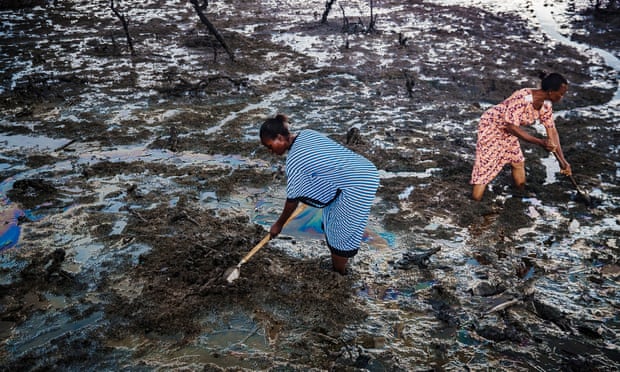Time to remediate polluted communities in Bayelsa State, Niger Delta region

By Obiabin Onukwugha
The Bayelsa State Governor, Senator Douye Diri, recently met with the Secretary-General of the Commonwealth, Baroness Patricia Scotland, at the body’s secretariat in London.
The meeting was not that of a jamboree, but a campaign for environmental justice for oil-ravaged communities in his state and the Niger Delta region at large.
The Otuabagi community, Oloibiri in Ogbia local government area, where oil was first struck in commercial quantity seventy years ago, is in Bayelsa State.
The campaign comes amidst the divestment of onshore and shallow water assets by oil multinationals, who operated and raped communities of the region for seven decades. As if to continually spite the people, these companies, with Shell who is the highest polluter taking the lead, have outrightly refused to address communities’ concerns or make any decisive statements as to how the environment and the people’s livelihood can be remediated.
When the United Nations Environment Programme (UNEP) released its report that led to the clean up of the Ogoni environment in 2011, part of the recommendations was to use the Ogoni clean up as pilot for the remediation of the entire Niger Delta region.
Regrettably, that project has continued at a snail pace, with no hope in sight for other communities.
In 2023, Diri commissioned an investigation through the Bayelsa State Oil and Environmental Commission (BSOEC) titled: “An Environmental Genocide: Counting the Humanitarian and Environmental Cost of Oil in Bayelsa, Nigeria.
The 216-page report of the commission, which was chaired by the former Archbishop of York, Lord John Sentamu, was launched at the House of Lords in London.
The committee, among others, recommended concerted international action to generate and invest at least US $12 billion over the course of 12 years to repair, remediate and restore the environmental and the public health damage caused by the oil and gas exploration activities. But these recommendations have neither been given any consideration by the international community or the federal government of Nigeria.
Diri, during the meeting called on the Commonwealth to intervene, stating that international oil companies operating in Bayelsa were divesting and exiting the Niger Delta without any concrete plan to remediate and compensate host communities polluted by their exploration activities.
The Bayelsa state governor, who also faulted the 13% derivation to oil-producing states and the federal laws on oil and gas exploration in Nigeria, appealed to the Commonwealth to support efforts to address the environmental injustice that oil-bearing communities had been subjected to.
Diri said his administration was open to dialogue to prevent a double jeopardy for the communities.
He noted that the state government had previously reached a negotiated settlement with Shell on dispute issues that involved tenement rates for the Gbarain gas processing facility and looks forward to opening similar discussions on this issue.
Diri also revealed that his administration will be seeking legal redress if negotiations fail.
The move by the Bayelsa State government is a wake up call for other state governments across the Niger Delta to also agitate for the remediation of their communities. As revealed by the Bayelsa State report, the continued oil pollution has led to severe health and environmental impacts on the people.
In the meantime, the Commonwealth Secretary-General, Baroness Scotland, has promised that a team will examine the report and proffer appropriate recommendations that will guide all parties concerned.
While action by the Commonwealth Secretary-General is being awaited, It is important that other state governments take immediate actions to also push for the remediation of their communities.
For several years, environmentalists had been in the forefront of magnifying community voices and drawing the attention of international bodies to the crimes being committed by these oil multinationals against the environment and peoples of the Niger Delta. It is therefore time that the international community intervenes.
